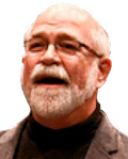Child Development
When Teddy Roosevelt Met Booker T. Washington
Booker T. Washington’s childhood without play.
Posted August 23, 2022 Reviewed by Abigail Fagan
In his compelling 1901 autobiography, Up from Slavery, Booker T. Washington, educator, celebrated author, sought after lecturerer, “race leader,” friend to two Presidents and colleague of wealthy and influential philanthropists described the circumstances of a “miserable, desolate, and discouraging” childhood. Growing up with only a first name, uncertain even of the date of his birth, he shared a pallet with his brother and sister, a “bundle of filthy rags,” piled on the dirt floor of a tiny cabin. Ill-clothed, poorly fed, overworked and under-rested like most other enslaved children, his early years were also playless.
Much later he became a hero to millions. Devotees called him the “Negro Moses” for his lifelong mission to bring the advantages of education and technical training to 10 million freed slaves and their children. When a curious admirer asked him about the “sports and pastimes” of his boyhood, however, he could spare only a couple of sentences in answer. “Until that question was asked,” Washington wrote, “it had never occurred to me that there was no period of my life that was devoted to play.” Play is near universal in the lives of the children we know now. Not so for children in bondage. “From the time that I can remember anything,” he recalled, “almost every day of my life has been occupied in some kind of labour.”
A Playless Childhood
Occupied dawn to dusk with farmyard chores, the five-year-old especially dreaded the weekly trip to deliver a large sack of grain to a mill about three miles distant. The bag of corn would be balanced precariously on the back of a horse, and young Booker would be perched on top and sent on his way. Predictably, the sack would fall and take him to the ground with it. “As I was not strong enough to reload the corn upon the horse,” he recalled, “I would have to wait, sometimes for many hours, till a chance passer-by came along who would help me out of my trouble.” Terrified by tales of vengeful Confederate deserters who would emerge from the woods to cut the ears off Black children, he usually spent that interval crying. And, after a tardy return, he would “get a severe scolding or a flogging.”
Carefree Childhood Play: A Modern Invention
Sadly, young Booker’s experience was not unusual in human history. Because for most of the last 10,000 years most rural societies (that is to say, most societies that were not hunter gatherers) operated at near subsistence level, hard work for all family members was the rule. In fact, for most of our settled past, most children were put to work as early as four or five years of age. (Progress against child labor moved slowly. The employment of children younger than 16 in arduous tasks like mining and manufacturing wasn’t legally prohibited in the United States until 1938.) Accordingly, the separate category of a carefree, playful childhood that we think of almost as a birthright now did not fully emerge until the 19th century. And even then, it was the province mostly of a growing urban middle class.
Freedom Did Not Equal Ease
When emancipation came in 1865, the burden of young Booker’s labors did not lift. His stepfather loaned him out to sweltering work at West Virginia’s saltwork furnaces where brine was evaporated to crystalize salt. He soon after worked at even more arduous duties digging coal in the mines that fed the steam evaporators.
Washington, as he named himself, worked equally as hard at the task of self-education. In the antebellum South, teaching slaves to read had been a criminal offence. And so, after the Civil War, education for Black children was vanishingly scarce. But in late nights and early mornings, Booker stole time from sleep and rest to teach himself the alphabet from Noah Webster’s primary speller, the “blue back book.” Keen to escape the “degrading influences” of saltworks and coal mines once free, and though nearly destitute, he set out on a journey (mostly on foot) to the Hampton Normal and Agricultural Institute where he was eventually accepted as a student.
From General Samuel C. Armstrong, the Institute’s founder, the son of Presbyterian missionaries in Hawaii and later a Freedman’s Bureau official, Washington absorbed the missionary spirit, and undertook his lifelong mission to uplift former slaves and their families. He would go on to found and direct the Tuskegee Institute where he celebrated self-sufficiency and self-improvement and trained teachers for the “industrial education” of Black students. This was work that counted.
A Realist in the Jim Crow South
His trials had made Washington a realist. So too, the terrorist violence and subjugation of Blacks during the white-supremacist Jim Crow era cautioned him to accommodate racial segregation. At a famous speech at the Atlanta Exposition in 1895, he famously conceded “in all things purely social, we can be as separate as the fingers, yet one as the hand in all things essential to mutual progress.”
His concession to the forces of repression alienated contemporary Northern Black public intellectuals, most prominently the crusader for racial justice, W.E.B. DuBois. These inheritors of the antislavery tradition instead focused on regaining the rights tragically abandoned in the Compromise of 1877. To them accommodation felt like betrayal and acquiescence seemed like surrender. To Ida B. Wells-Barnett, chair of the Anti-Lynching League, Washington’s “gospel of work,” was a route toward permanent subjugation, and simply the South’s “old slavery practice in a new dress.”
A Minor Regret, No Time for Sports
Washington allowed only one smidgen of regret about the lack of play in his lifetime of hard, continual, ambitious, consequential work. “I think I would now be a more useful man,” he wrote, “if I had had time for sports.”
He did not say that he would have enjoyed himself more, that he would have been amused, diverted, and restored, that sport would strengthen friendships or give him surcease or relief, or that sport would provide the occasion to revel in spontaneity and delight in surprise. He said that sport would have made him more useful. Sport was a means to an end, not an end in itself. (Booker T. Washington surely needed no toughening, so there may be something coy and calculated about the claim, because sport was emerging among Progressives as a route to national moral rearmament.)
But this sentence of Washington’s is key to understanding much of the gospel of work and success, the crusade for efficiency and uplift, and the enthusiasm for sport that was at the core of the psychology that nurtured Progressive thought at the turn of the last century. The sentiment endeared Washington to white reformers and philanthropists who supported his “model Negro schools” that took root across the South.

Teddy Roosevelt, a Kindred Spirit
For one of these Progressives, Teddy Roosevelt, Vice President, author of many books and essays, adventurer, warrior, reformer, conservationist, boxer and student of jiu jitsu, and champion of self-help, a life of striving culminated in his ascent to the presidency. Though the child of a privileged family, Roosevelt has his own childhood adversities to overcome. Sickly, severely asthmatic, nearsighted, and undersized as a child, he might have settled into a quiet, riskless, neurasthenic, forgettable adulthood. Instead, aiming to surmount his disabilities, he became an advocate and practitioner of the “strenuous life.”
Naturally he much admired another self-created figure, Booker T. Washington, who had also triumphed over a wretched childhood. Shortly after his inauguration, Roosevelt set a precedent (and braved a vile racist backlash from white supremacists) by inviting the great man to dine at the White House.
In that convivial evening the two kindred spirits from backgrounds different as one could imagine, both ambitious and strongly paternalistic, saw eye-to-eye on many subjects, including the dignity of “toil and effort” and the utility of sport. To Washington, the institution of slavery degraded not only the enslaved but also the slaveholders who became lazy, dissipated, unskilled, spoiled, and as we will say now, entitled. And to Roosevelt, the country itself had become pampered, self-indulgent, unmanly, soft, and citified, and as a consequence, wanting in both moral and physical courage.
Football’s Martial Values, a Cure for Unmanliness
Among physical culture advocates at the turn of the last century, partial cure for the national malaise could be found in the martial values of sport, notably football. In its ideal, football then and now powerfully elevates self-sacrifice, courage, endurance and commitment, rough decency and good sportsmanship, and both teamwork and individual glory.
In practice at the turn of the last century, though, the game was also marked by savage brutality. Following 19 football fatalities in the 1905 season, several Ivy League schools banned football. In response, Teddy Roosevelt called prominent coaches to the White House for the purpose of curtailing the game’s most dangerous practices. (And thus, he has been called the “sports President, and was plausibly credited with saving college football, now a national entertainment, from its most violent impulses.) With the sweeping rule changes Roosevelt instigated, the game would become fairer without making it overly, as he put it, “ladylike.”
The lessons of the sport could not be lost. In life as in a football game, he wrote, “the principle to follow is: Hit the line hard, don’t foul and don’t shirk, but hit the line hard!”
The American Boy
In an essay he titled “The American Boy,” Roosevelt summarized his stern paternal advice: the young man “must not be a coward or a weakling, a bully, a shirk, or a prig. He must work hard and play hard.” But crucially, like fellow striver Booker T. Washington, play was wholly subservient to self-improvement and national resolve, a pitch that for good and bad is likely to seem shopworn to us now. Roosevelt cautioned that enthusiasts should not confuse means and ends or enjoy play in and of itself. Delight? Pleasure? Satisfaction? Fun? Not for Teddy Roosevelt. Football, he wrote, could be taken seriously only as “the mere means of preparation to do work that counts when the time arises.”
References
Booker T. Washington, Up from Slavery (1901); Deborah Davis, Guest of Honor: Booker T. Washington and the White House Dinner that Shocked a Nation, (2013).
W.E. Burghardt DuBois, “Of Mr. Booker T. Washington and Others,” in The Souls of Black Folk, (1903); Ida B. Wells-Barnett, “Booker T. Washington and his Critics,” World Today, vol. 6, (1904).
Theodore Roosevelt, “The American Boy,” in The Strenuous Life: Essays and Addresses, 1900; Samuel Haber, Efficiency and Uplift, (1964)
Peter Gray, “Play as a foundation for Hunter-Gatherer Social Existence,” American Journal of Play, (2009).




